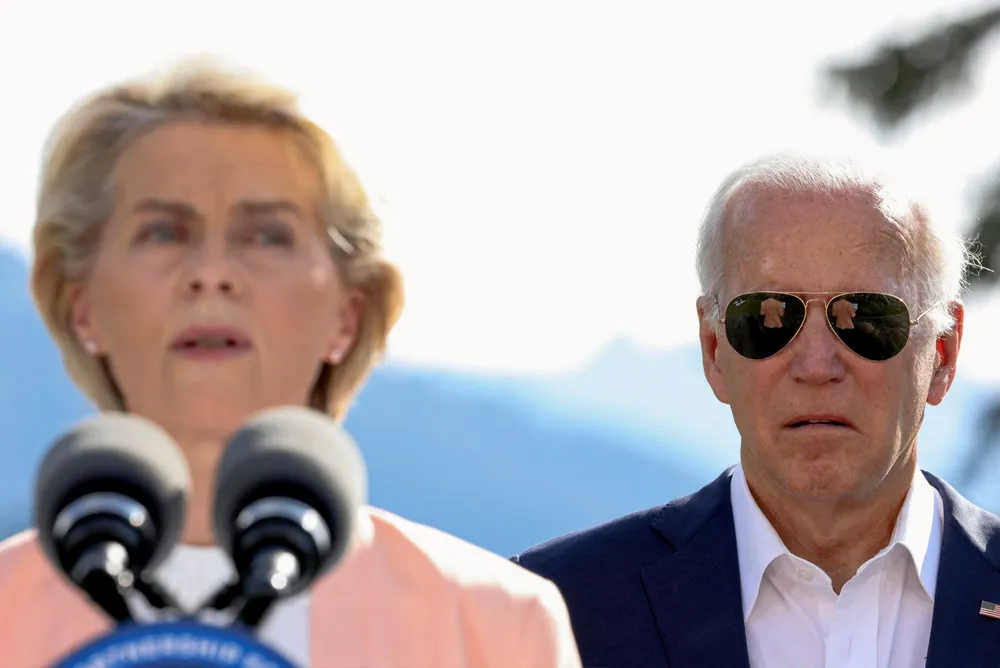EXCLUSIVE | EU officially asks US to amend 'market-distorting' clean hydrogen production tax credits
The subsidies in the Inflation Reduction Act 'threaten jobs and economic growth in Europe and elsewhere', Brussels tells US government

The subsidies in the Inflation Reduction Act 'threaten jobs and economic growth in Europe and elsewhere', Brussels tells US government
